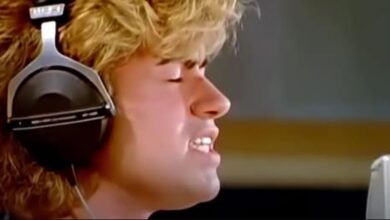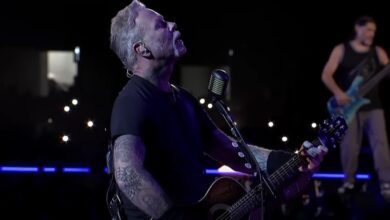They Had So Much Chemistry. The Stars Really Aligned For These Four Men And The World Is Forever Grateful
“Don’t Let Me Down” by The Beatles is a song that stands out for its raw emotional depth and simplicity, a significant piece in the band’s rich discography. Written by John Lennon as a heartfelt plea for emotional support from Yoko Ono, the song was first released as a B-side to the single “Get Back” in 1969 and later included in the band’s final rooftop concert, which was part of the documentary film “Let It Be.”
The origins of “Don’t Let Me Down” are deeply personal. John Lennon composed the song during a tumultuous period in his life, as he was navigating his new relationship with Yoko Ono and the impending breakup of The Beatles. The lyrics convey a sense of vulnerability and a fear of emotional abandonment, showcasing a more intimate side of Lennon’s songwriting. He described it as one of his first genuine songs about Yoko Ono, expressing his deep emotional reliance on her.
Musically, “Don’t Let Me Down” is characterized by its straightforward rock and blues sound, which was somewhat of a return to the band’s early musical roots. The track features a prominent bass line by Paul McCartney, which adds to the song’s groove, while Billy Preston’s electric piano provides a soulful touch, enhancing its emotive quality. The vocal performance by Lennon is raw and powerful, conveying the urgency and sincerity of his plea.
The recording sessions for “Don’t Let Me Down” were part of the larger “Get Back” project, which aimed to bring The Beatles back to their live performance roots. This project, later renamed “Let It Be,” involved recording songs with minimal overdubs and a focus on live takes. “Don’t Let Me Down” was recorded during these sessions and was one of the few songs where the group collaborated closely with Billy Preston, whose involvement added a new dimension to the song’s sound.
The song’s inclusion in The Beatles’ famous rooftop concert on Savile Row in London marked one of the most iconic moments in rock history. This impromptu concert was The Beatles’ final public performance, making “Don’t Let Me Down” especially significant as it captured the raw live energy of the band during a period of internal strife.
Despite its powerful performance and emotional depth, “Don’t Let Me Down” was somewhat overshadowed by the A-side “Get Back” and did not receive the same level of commercial success. However, over the years, it has grown in stature and is often praised for its emotional honesty and musical simplicity.
John Lennon’s contributions to The Beatles and the music world are immeasurable, and “Don’t Let Me Down” is a testament to his ability to convey complex emotions through music. Lennon’s songwriting evolved significantly over the years, from the pop-oriented hits of the early Beatles to the more introspective and experimental works of his solo career.
Today, “Don’t Let Me Down” is remembered not just as a song but as an emotional expression that resonates with audiences for its authenticity and heartfelt message. It remains a beloved part of The Beatles’ repertoire, appreciated for its emotional depth and musical sincerity, embodying the timeless quality of the band’s music that continues to influence generations.





